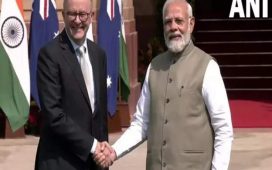Finance secretary TV Somanathan said: “There is adequate supply of smaller-denomination notes in the economy to substitute for the ₹2,000 notes. I don’t see any impact whatsoever on the economy.”
Economic affairs secretary Ajay Seth said it is only an exchange of notes of one denomination for smaller denominations. “Money supply to the economy will remain unaffected. The currency (the ₹2,000 note) continues to be a legal tender”.
Chief economic adviser (CEA) V Anantha Nageswaran said: “The circulation of the ₹2,000 notes is really small now. The Reserve Bank of India (RBI) had stopped printing these notes in FY19.” He added that then finance minister Arun Jaitley had also said in 2016 that these notes should be eventually phased out.
The current withdrawal “won’t be economically significant at all”, the CEA concluded.
As part of its ‘clean note policy’, the RBI on Friday declared the gradual withdrawal of ₹2,000 notes from circulation, stating that it has served its purpose. The central bank has encouraged people to get these notes exchanged from banks by September 30.
‘No impact on farm procurement’
Somanathan asserted that the move won’t, in any way, hit farm commodity purchases during the ongoing rabi harvest season that could hurt the rural population.
Usually, the rabi harvest is mostly over by June. “The government has taken due care to ensure that there is no disruption,” he added.
“People can continue to use the ₹2,000 notes for now and the rabi harvest will be over well before September 30,” the finance secretary said. Moreover, most of the high-value notes would be concentrated in urban areas, “so the phase-out won’t hit rural areas”, he added.
People can continue to accept such notes, deposit them in their banks and exchange them with smaller denomination notes by September 30 without any restrictions, Somanathan explained.
‘This is no demonetisation’
The top officials rejected claims that people are going to experience the 2016 demonetisation pains again, reiterating that ₹2,000 notes continue to be a legal tender.
Economic affairs secretary Seth said: “It is not demonetisation that would require remonetisation”. The ₹2,000 note is withdrawn and equal value notes of other denominations would be given back, he said. “If someone deposits the high-value notes in his/ her bank account, the withdrawal can be done as required. Sufficient currency notes of other denominations are available.”










